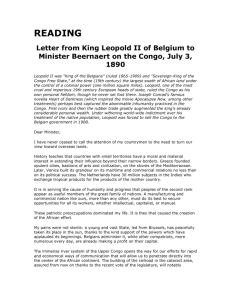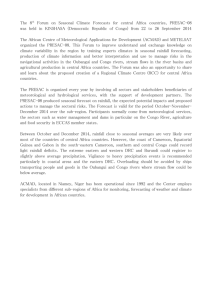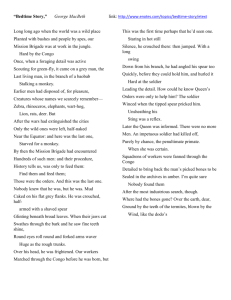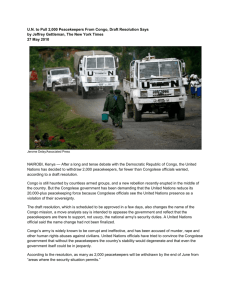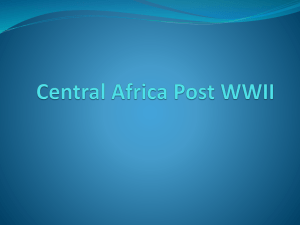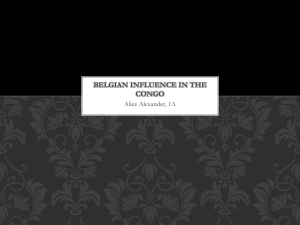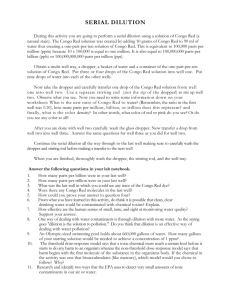The Invisible State Foreign Policy July/August 2013 By Jeffrey
advertisement
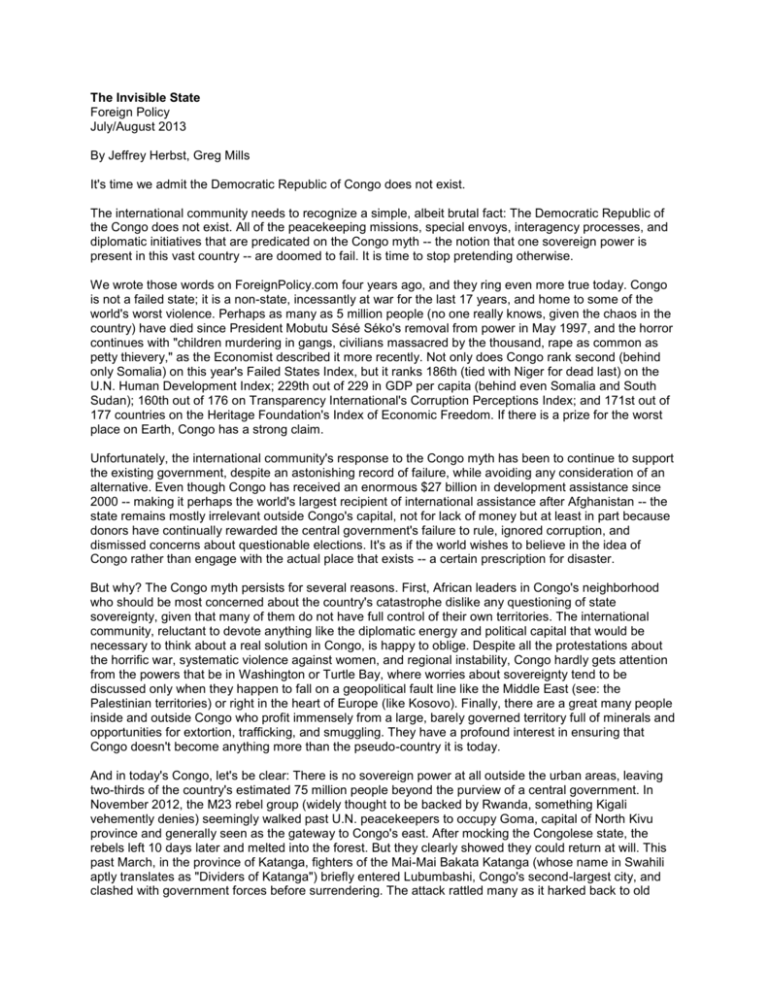
The Invisible State Foreign Policy July/August 2013 By Jeffrey Herbst, Greg Mills It's time we admit the Democratic Republic of Congo does not exist. The international community needs to recognize a simple, albeit brutal fact: The Democratic Republic of the Congo does not exist. All of the peacekeeping missions, special envoys, interagency processes, and diplomatic initiatives that are predicated on the Congo myth -- the notion that one sovereign power is present in this vast country -- are doomed to fail. It is time to stop pretending otherwise. We wrote those words on ForeignPolicy.com four years ago, and they ring even more true today. Congo is not a failed state; it is a non-state, incessantly at war for the last 17 years, and home to some of the world's worst violence. Perhaps as many as 5 million people (no one really knows, given the chaos in the country) have died since President Mobutu Sésé Séko's removal from power in May 1997, and the horror continues with "children murdering in gangs, civilians massacred by the thousand, rape as common as petty thievery," as the Economist described it more recently. Not only does Congo rank second (behind only Somalia) on this year's Failed States Index, but it ranks 186th (tied with Niger for dead last) on the U.N. Human Development Index; 229th out of 229 in GDP per capita (behind even Somalia and South Sudan); 160th out of 176 on Transparency International's Corruption Perceptions Index; and 171st out of 177 countries on the Heritage Foundation's Index of Economic Freedom. If there is a prize for the worst place on Earth, Congo has a strong claim. Unfortunately, the international community's response to the Congo myth has been to continue to support the existing government, despite an astonishing record of failure, while avoiding any consideration of an alternative. Even though Congo has received an enormous $27 billion in development assistance since 2000 -- making it perhaps the world's largest recipient of international assistance after Afghanistan -- the state remains mostly irrelevant outside Congo's capital, not for lack of money but at least in part because donors have continually rewarded the central government's failure to rule, ignored corruption, and dismissed concerns about questionable elections. It's as if the world wishes to believe in the idea of Congo rather than engage with the actual place that exists -- a certain prescription for disaster. But why? The Congo myth persists for several reasons. First, African leaders in Congo's neighborhood who should be most concerned about the country's catastrophe dislike any questioning of state sovereignty, given that many of them do not have full control of their own territories. The international community, reluctant to devote anything like the diplomatic energy and political capital that would be necessary to think about a real solution in Congo, is happy to oblige. Despite all the protestations about the horrific war, systematic violence against women, and regional instability, Congo hardly gets attention from the powers that be in Washington or Turtle Bay, where worries about sovereignty tend to be discussed only when they happen to fall on a geopolitical fault line like the Middle East (see: the Palestinian territories) or right in the heart of Europe (like Kosovo). Finally, there are a great many people inside and outside Congo who profit immensely from a large, barely governed territory full of minerals and opportunities for extortion, trafficking, and smuggling. They have a profound interest in ensuring that Congo doesn't become anything more than the pseudo-country it is today. And in today's Congo, let's be clear: There is no sovereign power at all outside the urban areas, leaving two-thirds of the country's estimated 75 million people beyond the purview of a central government. In November 2012, the M23 rebel group (widely thought to be backed by Rwanda, something Kigali vehemently denies) seemingly walked past U.N. peacekeepers to occupy Goma, capital of North Kivu province and generally seen as the gateway to Congo's east. After mocking the Congolese state, the rebels left 10 days later and melted into the forest. But they clearly showed they could return at will. This past March, in the province of Katanga, fighters of the Mai-Mai Bakata Katanga (whose name in Swahili aptly translates as "Dividers of Katanga") briefly entered Lubumbashi, Congo's second-largest city, and clashed with government forces before surrendering. The attack rattled many as it harked back to old fears that the province would try to secede, given that it broke away from the newly independent Congolese state for three years in the early 1960s and foreign allies had to intervene twice in the 1970s to help maintain Kinshasa's rule over the mineral-rich area. There are many other such insurgencies elsewhere in the country, from the Mai-Mai Morgan in Congo's Eastern province to the Mai-Mai Raia Mutomboki in North Kivu and South Kivu. Copyright 2013 Foreign Policy
